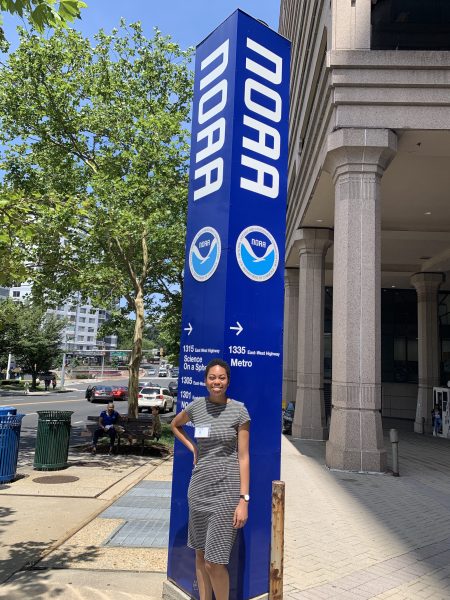Toni Sleugh selected as 2019 Ernest F. Hollings Undergraduate Scholar
Author: Stacey Maifeld
Author: Stacey Maifeld

Iowa isn’t known as a place to study marine biology. However, at Iowa State University, Toni Sleugh (’21 biology) has gained access to a sea of research opportunities in marine sciences, most recently through the prestigious Ernest F. Hollings Undergraduate Scholar Program.
Sleugh is one of only 125 undergraduate students from across the United States to be selected as a 2019 Ernest F. Hollings Undergraduate Scholar. Awarded by the National Oceanic and Atmospheric Administration (NOAA), the competitive award includes a two-year academic scholarship for recipients’ junior and senior years, paid internship opportunities and funding to participate in two national scientific conferences.
Established in honor of the late Senator Hollings, the award supports students majoring in a NOAA mission field, such as biology, meteorology or mathematics.
“I’ve always been interested in marine biology, but Iowa isn’t the best place to get hands-on experience,” Sleugh said. “Working at a NOAA facility is a great chance to learn more about something I’m passionate about.”
Sleugh participated in the STEM Scholars program at Iowa State, which she credits with introducing her to career and research opportunities. The program helped her get into a competitive REU (Research Experience for Undergraduates) at the Marine Biological Laboratory in Woods Hole, Massachusetts.
While at Woods Hole, a former Hollings Scholar encouraged Sleugh to apply for the Hollings award. Sleugh then also received encouragement to apply from Laura Good, assistant director of nationally competitive awards for the Iowa State Honors Program.
“I found out I was accepted when I received an email from the scholarship program while I was in class,” Sleugh recalled. “I immediately texted my family and after class I went to Laura’s office to share the good news.”
Last summer Sleugh attended NOAA orientation in Maryland, where she met NOAA scientists and learned more about the agency’s diverse work, which ranges from weather forecasting to long-term conservation projects.
In the summer of 2020, she will intern at NOAA’s Howard Marine Science Laboratory in Sandy Hook, New Jersey.
“My project will focus on how climate change and other environmental changes affect larval fish,” Sleugh said. “I’m excited to learn more about an ecosystem and topic that interests me and have the opportunity to do field and lab work.”
Sleugh plans to attend graduate school in marine biology and pursue a career in marine science research or policy advising. Her research interests focus on how environmental changes and human impacts affect animal behavior.